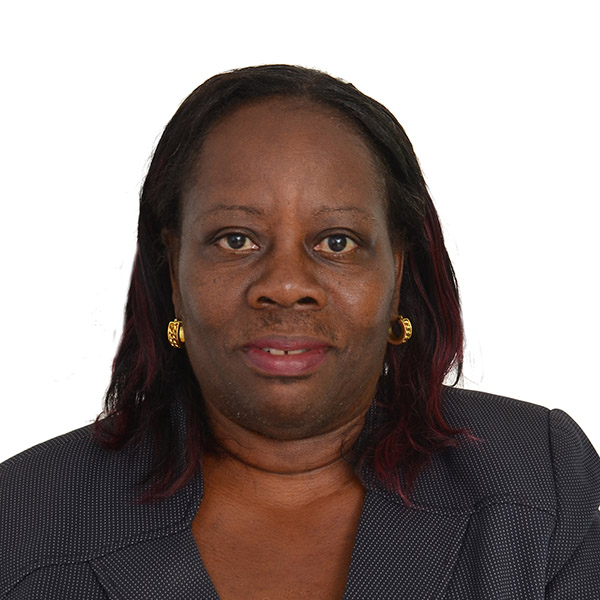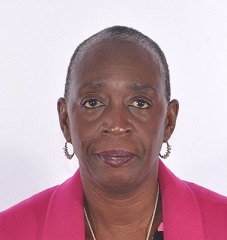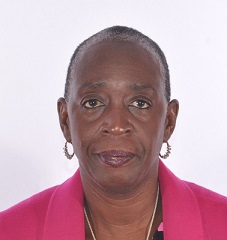Economic Growth By Transforming Domestic Savings into Domestic Investment
By Laurel Theresa Bain
The unstable global environment requires constant review of domestic policies and programmes to maintain economic growth and protect the welfare of the population and, in particular, those in the lower income bracket and other vulnerable segments of the population. Grenada’s economy is projected to grow by 4.1 per cent in 2025, following an estimated growth rate of 3.7 per cent in 2024. At the time of the estimated growth rate for 2025, the global economy was projected to grow by 3.3 per cent, with the growth in the USA of 2.7 per cent and China of 4.6 percent, the two main contributors to global economic growth. The growth rate for the UK and Canada, main trading partners with Grenada, was projected at 1.6 and 2 per cent respectively.
The impact of the upheavals in the global trading environment and the accompanying uncertainties brought about by the policies of the USA have led to a downward revision of global growth to 2.8 per cent for 2025, with lower growth rates for the USA of 1.8 per cent and China of 4.0 percent. The UK and Canada are now projected to grow at 1.1 per cent and 1.4 per cent respectively.
The lower global growth is expected to be accompanied with a higher rate of inflation and unemployment among some countries, volatility in the financial markets and disruptions in supply chains which could further supress economic growth.
Grenada, like the other Small Island Developing States, will be adversely affected by the global developments and hence the focus should be on developing or accelerating strategies to buffer the economy from the negative impact of the volatile global environment. At this time, the economic strategy should prioritise improving the education and skills of the population; strengthening institutions and systems for the efficient utilisation of the education and skills; improving the efficiency of transacting business to reduce cost of operations; increasing exports, particularly the export of services that are not easily subjected to cross border restrictions, and fast tracking policies and programmes for strengthening linkages in the domestic economy.
This requires the continued pursuit of the reform of the education system; promoting the creative and digital economy as a main economic sector; increasing agriculture production for domestic consumption and export and strengthening its linkages with the other sectors; supporting the utilisation of renewable energy; and developing systems to identify and protect the welfare of the lower income and other vulnerable segments of the population.
In this challenging global environment, the allocation of available financial resources should be considered in implementing the strategy for robust economic growth, job creation and transforming the economy. As such, the conversion of domestic savings into productive domestic investment should be part of the strategy.
Domestic savings, by both the public and private sectors, increased in 2024. In the public sector, the Central Government operations resulted in a positive balance (overall fiscal surplus) of $310.5M and this was preceded by an overall surplus in 2023. The fiscal performance resulted in the accumulation of government deposits in the financial system as reflected by the financial position of the Central Government at the Commercial banks as of December 2024.
The deposits of other public institutions also increased in 2024. For the private sector, growth was recorded in both savings and foreign currency deposits. Consequently, the financial system was highly liquid in 2024, as it was in the previous four years. The excess liquidity in the financial system was channelled into external investments. This was reflected in the net external assets of the commercial banks which increased by $422.2M to $1,776.6M.
The extent of converting savings into domestic investment influences economic growth. In this regard, the developments on the external accounts are of significance. In 2024, foreign exchange inflows to the Government, which contributed to the overall fiscal surplus, was facilitated by substantial inflows through the Investment Migration Agency (IMA) and the proceeds from the Caribbean Catastrophe Risk Insurance Fund (CCRIFF). In the case of the private sector, the foreign exchange inflows were related mainly to Foreign Direct Investment. However, the foreign exchange inflows were dampened by foreign exchange outflows associated with the external investment in various types of instruments by financial institutions, estimated at $720M, due to the high liquidity in the financial system.
The international environment is currently unstable, and climatic risks are ever present. Therefore, the Government must maintain adequate reserves to buffer the economy during economic shocks. However, of importance is the management of the reserves to balance between the adequacy of the reserves to safeguard against shocks and the use of savings for developing and transforming the economy. A decision would be required on the optimal level of reserves to be maintained, given the domestic and international environment, and craft a strategy to utilise the reserves that surpasses the optimal level for the promotion of economic growth.
The notable features in the economy in 2024 were high levels of domestic savings and significant foreign exchange inflows which was accompanied by substantial foreign exchange outflows. There is the need to remodel the financial intermediation process to allow for directing a larger portion of financial resources into domestic investments, thereby contributing to economic growth, employment and ultimately the transformation of the economy.
An analysis should be undertaken on the optimal level of reserves the Government should maintain. Thereafter, there is the need to facilitate the channelling of the excess reserves (above the optimal level), directly by the Central Government or indirectly through institutions, into specific developmental projects.
The emerging issues are:
• What is the optimal level of reserves and how should these be invested?
• How could more saving be channelled into productive domestic investment and investment incomes be retained in the economy?
• What are the institutional, technical and capacity constraints in the economy that limit domestic investment?
The consideration of these issues could lead to the establishment of a strategy for the management of the reserves in this unstable and challenging environment.
Knowledge is power and Experience is the greatest teacher.
Disclaimer: This article is written in my personal capacity and not in my capacity as Chairwoman of the Fiscal Resilience Oversight Committee.







